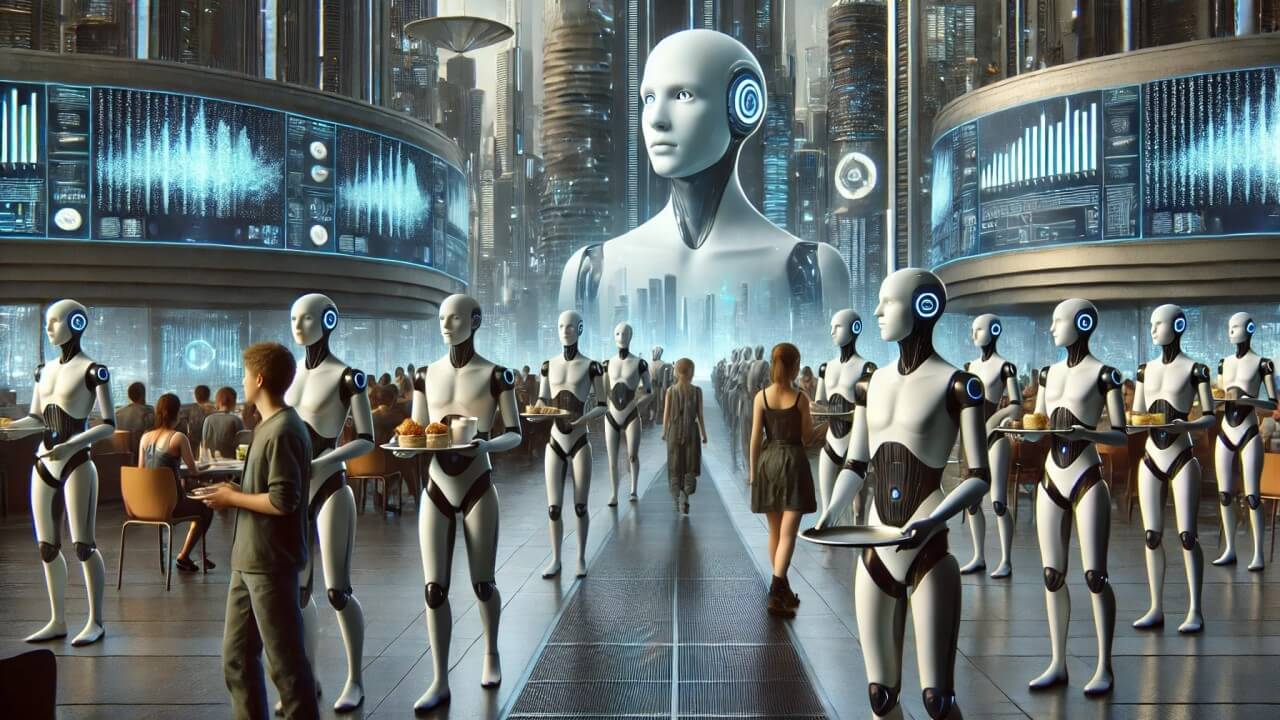The relentless march of technological progress, particularly in the realm of Artificial Intelligence (AI), has sparked both excitement and apprehension about the future. However, leading computer scientists are increasingly optimistic, envisioning a future where AI not only transforms industries but also embodies the collaborative spirit of science fiction, specifically drawing parallels to the interconnected intelligence seen in Star Trek.
Researchers from prestigious institutions like Loughborough University, MIT, and Yale, are describing the rise of "Collective AI"—a network of AI agents capable of independent learning and adaptation, interconnected to share knowledge and skills continuously. This approach allows AI systems to evolve rapidly by pooling individual experiences and insights. This concept mirrors the fictional Borg from Star Trek, a cybernetic race operating as a collective consciousness, constantly exchanging information through a unified network. However, the scientists emphasize that unlike the Borg's assimilation-driven agenda, Collective AI aims for positive breakthroughs across various fields.
Dr. Andrea Soltoggio from Loughborough University, the lead researcher, explains that instant knowledge sharing across a collective AI network will enable rapid responses to novel situations, challenges, and threats. For instance, in cybersecurity, if one AI unit identifies a threat, it can promptly share the knowledge, triggering a collective response, similar to the human immune system. Other potential applications include disaster response robots that can quickly adapt to changing conditions and personalized medical agents that improve health outcomes by merging cutting-edge medical knowledge with patient-specific information.
This vision contrasts with the current landscape dominated by large, expensive AI models with limited lifelong learning and knowledge-sharing capabilities. The scientists believe that a sustainable, evolving, and collaborative collective of AI units is more likely to emerge in the future. This approach echoes the way human knowledge has grown incrementally over millennia through communication and sharing, suggesting similar dynamics could occur in societies of AI units implementing democratic and collaborative collectives.
The rise of "agentic" AI systems is another key trend shaping the future. These systems can act autonomously to complete tasks rather than simply answering questions. AI futurist Ray Kurzweil predicts a shift towards these agentic systems, with AI agents handling complex tasks like scheduling appointments and writing software. Experts envision AI agents functioning as virtual co-workers, though in the near term, their novelty might be their defining characteristic.
However, this optimistic outlook is tempered by acknowledgements of potential risks. Collective AI could face challenges such as the swift spread of unethical or illicit knowledge. To mitigate this, the researchers emphasize that AI units should maintain their own objectives and independence from the collective, creating a "democracy of AI agents" that reduces the risk of domination by a few large systems. Data privacy is another concern, as training AI models on public data increases the chances of data security breaches. A survey revealed that a significant percentage of businesses have entered non-public company information into generative AI tools, raising concerns about potential damage to intellectual property and legal rights.
The increasing energy demands of AI are also a significant consideration. The computational power required to train generative AI models can demand a staggering amount of electricity, leading to increased carbon dioxide emissions and pressures on the electric grid. Furthermore, the water needed to cool the hardware used for training and deploying these models can strain municipal water supplies and disrupt local ecosystems.
Despite these challenges, the potential benefits of AI are undeniable. Computer vision, a subfield of AI, is already transforming industries by enabling machines to understand and analyze images and videos. This technology is used in retail to track inventory levels, in healthcare to improve diagnostics, and in autonomous vehicles to navigate roads. The rise of AI is also expected to improve business automation, with chatbots and digital assistants handling customer conversations and answering employee queries.
As AI continues to evolve, it's crucial to address the ethical, social, and environmental challenges it poses. Ensuring data privacy, promoting responsible AI development, and mitigating the energy consumption of AI models are essential steps to harnessing the full potential of this transformative technology while minimizing its risks. The future envisioned by these computer scientists is one where AI empowers humanity, driving innovation and progress in a collaborative and sustainable manner, much like the optimistic vision of Star Trek.

















